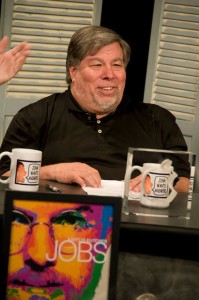by Bemigho Awala
Innovators change things. They take new ideas, sometimes their own, sometimes other people’s, and develop and promote those ideas until they become an accepted part of daily life. Innovation requires self-confidence, a taste for taking risks, leadership ability and a vision of what the future should be.
Thomas Edison, Alexander Bell, Henry Ford, Steve Wozniak and Mark Zuckerberg. What do these names have in common? They had an idea. They were driven by passion. They altered the reality of existence by pioneering innovative solutions to the challenges they were confronted with. These names will never be forgotten. Thomas Edison invented the electric light bulb. Alexander Graham is credited with inventing the first telephone. Henry Ford didn’t invent the motor car, however more than any other individual, he transformed the automobile from a relative piece of invention to an object that has profoundly shaped the 20th century and continues to define our lives today. Mark Zuckerberg from a room in his dormitory as a Harvard undergrad created Facebook, an online social networking service that has redefined the communications and relational landscape and can be likened to a continent on its own by virtue of its sheer size. And there was Steve Wozniak, the geek who created the Apple I& II, products that shaped the personal computing industry.
The lives of these great personalities present society with an anvil to forge out new frontiers and a mirror for citizens to aspire to greater things. Their stories demonstrate the need for self-improvement, power of vision, the tenacity of purpose as well as the need to look beyond self. Today these men have etched their names in gold and their works will continue to speak volumes.
A start-up called you
As a child, Stephen “Woz” Wozniak, 64, started reading “Tom Swift” books, which told the story of a young man who was an engineer and could design anything. This fired up his imagination and thus the seed for innovation were sown in Woz’s fertile mind. During his high school years, Woz would draw over fifty computer designs on paper, demonstrating an obsession for details. It is on record that while building his own machines, Woz had to solicit for information using samples of parts from friends who worked at engineering companies and borrowed manuals. He had worked at developing his talent without any thought of compensation. “What are the rewards?” he asks. “We didn’t have computers back then. You don’t get to use it, you don’t get a job, you don’t get any money. You don’t get any acknowledgment. You don’t get a title. The rewards are intrinsic. They’re in your own mind.” When this assertion is contrasted with the prevailing ethos among many young people today, it becomes glaring why we haven’t made much progress as a nation. The lessons from his humble beginnings are also profound – find young talents, nurture and encourage them to bloom while the gifted children in turn must have a rapacious appetite for the consumption of information as well as a commitment to their vocation, skill or craft. Imagine your life as a start-up. What are you willing to do to ensure it thrives and survives the odds stacked up against it? Will you be able to say, like Wozniak, that “every dream I’ve ever had in life has come true ten times over?”
Well watered roots.
Horticulturists tell us that to grow beautiful, colourful flowers, they must be well watered as too little water can cause plants to wilt and even die. This is oftentimes dependent on the proximity of the plant to its source of watering which then allows for a thorough wetting of the soil around the roots of the plant. So the next time you see a beautiful flower, its roots have been well nourished. Interestingly even the bible recognizes this fact when it presents a beautiful imagery in the book of Job 8: 16 about “a well-watered plant in the sunshine spreading its shoots (all) over the garden.”
Wozniak had attended Homestead High, a school in Silicon Valley. The school was near the leading engineering companies in the United States. He had a spirited electronics teacher, John McCullom and a well-equipped lab which helped to cement his love for creating products. The story of Steve Wozniak reveals that while designing the Apple I, he and Jobs were largely working to impress other members of the Palo Alto-based Homebrew Computer Club, a local group of electronics hobbyists interested in computing.
The area provided an incubating environment for a young Woz to hone his skills. “At our computer club, we talked about it being a revolution. Computers were going to belong to everyone, and give us power, and free us from the people who owned computers and all that stuff.” Such was the quality of thought and ambition that was made of sterner stuff derived from growing up in an area that is now the nerve centre and focal point of the Silicon Valley as well as an incubator to several high-technology companies such as Google, Facebook, Logitech, Intuit, Sun Microsystems, Pinterest, and PayPal.
You can’t go it alone.
The prodigious talent of Steve Wozniak is not in doubt. However, Bill Fernandez, Woz’s neighbour who also shared his interests in electronics, introduced him to another young fellow, Steve Jobs in 1969, when they were respectively 14 and 19. Interestingly, legend has it that at the time, Woz was building a little computer board with Bill Fernandez that they called “the Cream Soda Computer”. Woz showed it to Steve, who seemed quite interested. That was the beginning of the partnership.
While in college, Woz had designed a blue box for making free phone calls. Jobs came along and convinced him to sell them. “So we actually sold some of the video terminals that I had built. It was to become a portion of the Apple I”, Woz was quoted as saying about the birth of Apple computers. Also worthy of note is the fact that in a bid to build the Apple I, Wozniak sold his HP scientific calculator while Steve Jobs sold his Volkswagen van from which they raised $1,300, to create their first prototype computer.
Looking at the synergy between Woz and Jobs, it was built on mutual respect. “We actually never talked about it even once. If there was any engineering to do, hardware or software, I did it because Steve could do stuff, but he couldn’t do it as well as I. So never once did he even try. Never did he look at a circuit and suggest anything. I don’t want to mess around running a company—my whole life’s engineering—so he’s on the phone talking to reporters, talking to the dealers on the parts, ordering the parts, negotiating process, getting brochures made up or ads for magazines,” Woz said.
Woz had wanted to be in the background – doing the greatest engineering and coming up with innovative and creative solutions. The Woz and Jobs partnership is an exemplar for start-ups. On one hand, there was Steve Jobs, the fiery visionary, street savvy businessman with an intense management style, and there was Steve Wozniak, the shy and quiet genius who made the dream come alive. As it has been noted, the marriage of Wozniak’s technical ability and Jobs’s mesmerizing energy produced a power team as well as “the fastest-growing company in American business history”. The story of Apple’s origin speaks to the power of collaboration.
The key takeaway for young techies is to leverage on the power of finding the right person to partner with. This could make or mar any venture when one dares to think about Apple without Wozniak or Jobs.
A little bit of luck.
When asked to find one word that summarises his life till date, lucky was the word for Woz. “I am just the luckiest person in the world for everything I have. My wife, my Apple successes, from having kept true to some very strong and good values that I developed in myself when I was young”, he said. Still on the luck theme, Woz posits that one can have a good product which is backed by good philosophical thinking as well as being infused with heavy doses of purity and yet not sell. Citing the example of NeXT, a new computer products company founded by Jobs in 1989, which he hoped would compete with Apple, as a good machine that just didn’t have the luck to make it successful.
Wozniak had wanted to produce the Apple I for Hewlett-Packard where he was working before the start of Apple Computers. He was busy designing scientific calculators which provided a great opportunity to be working with the rave making product at that time. However after presenting the idea to HP, his bosses were intrigued by it, but couldn’t justify it as a Hewlett-Packard product for some reasons. And there came Paul Terrell, owner of The Byte Shop who gave Apple their start with a $50,000 order. This lucky gamble by the businessman proved to be the defining moment that has given rise to the innovative and superior streak with which Apple has distinguished itself since its start-up in the late seventies. By his own admission, Woz declares that “some great people are leaders and others are luckier, in the right place at the right time. I’d put myself in the latter category.”
Leading American innovator and Co- Founder Apple, Steve Wozniak is due to visit Nigeria next month.








